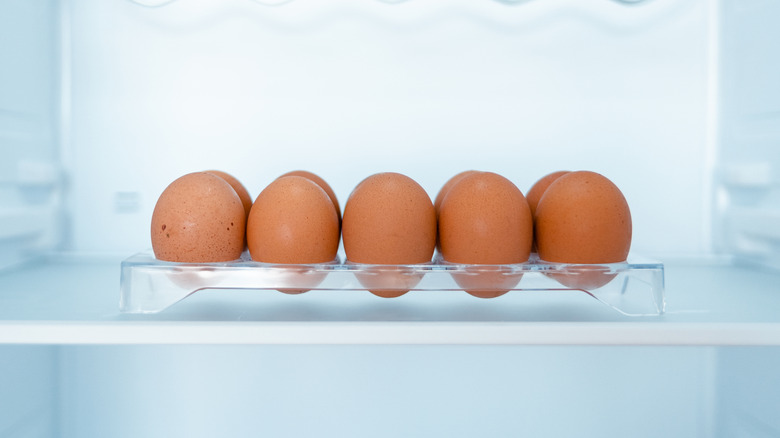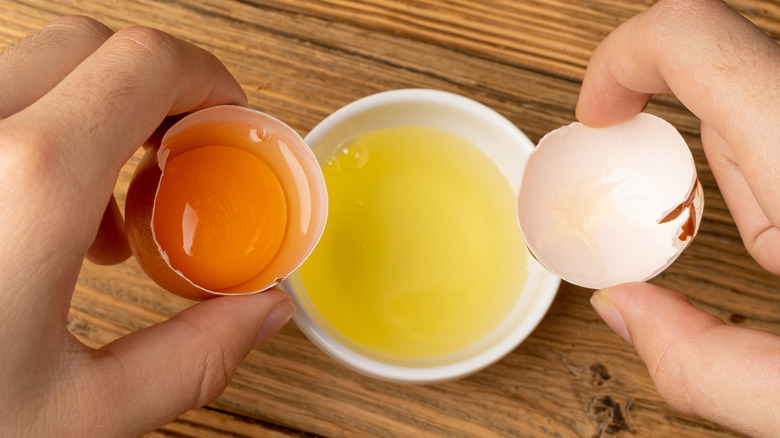The Absolute Worst Way To Cook Frozen Eggs
Of all the items that make it into your grocery cart, no product's price seems to have generated as much controversy over the last few years as a carton of eggs. The skyrocketing cost of this refrigerator staple may have some home cooks wondering whether they can stretch their dollar by stocking up and freezing their eggs. The answer is, surprisingly, "Yes." Eggs thawed post-icebox are indeed safe to consume. However, there are certain methods of preparation to avoid, specifically any recipe that calls for a soft, runny yolk.
Once defrosted, the eggs won't transform into yolk-erupting poached orbs for a Benedict or the sunny-side up diner classic waiting to be pierced by a corner of toast. That's because when they are frozen in the shell, the consistency of those protein-rich yellows thickens into an off-putting gelatinous clump. Additionally, the U.S. Department of Agriculture does not recommend placing whole eggs in the freezer in the first place. This is because the outer layer will likely crack when the liquid inside expands at very low temperatures, posing a potential health hazard.
To safely freeze eggs for use in other dishes — say, a pillowy scramble, an air-fried breakfast frittata, or as an ingredient in a baked good — the USDA suggests cracking them open into a bowl first and whisking the yolks and whites until thoroughly combined. The mixture should then be transferred to a freezer-safe container and dated. To thaw your frozen eggs, place the blend in the refrigerator overnight or under running cold water for immediate use.
Separating whites and yolks
The USDA has also given its stamp of approval to freezing whites and yolks individually, and, yes, there is a trick to make the yellows more texturally appealing. If you happen to be crafting any recipes that require the two be separated, save whichever component you're not immediately utilizing instead of feeding it to the garbage disposal. The whites freeze incredibly well, but to give the yolks an assist, add a pinch of salt and 1 ½ teaspoons of sugar or corn syrup. This should help prevent them from becoming gummy. Both can be stored for up to one year.
Once you're ready to put those defrosted eggs to good use, there's one step you shouldn't skip: whisking. A vigorous stir will help both yellows and whites emulsify with other components in batters or sauces, for instance. If you're looking for additional ideas on how to work through your new stock of frozen eggs, yolks can enhance everything from a soup's creamy thickness to the richness of cookie dough. Additionally, the versatility of the egg whites means they can top off a cocktail or serve as a binding agent for perfect fried chicken breading.

